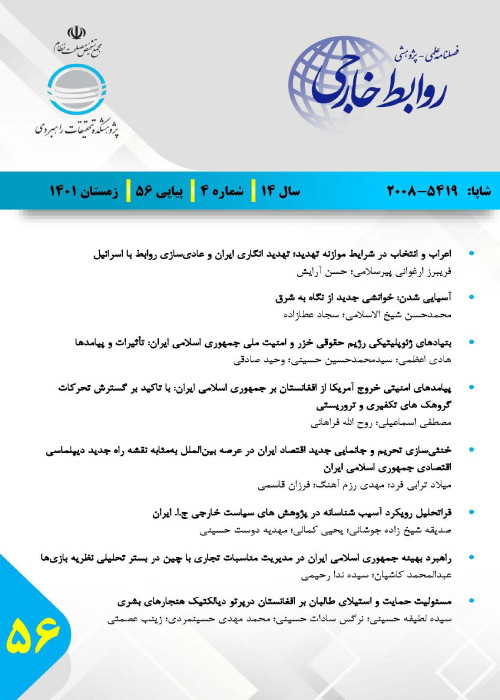Securitization of Iran and the U.S. National Security Strategy
Security is a much contested concept that cannot easily be defined anymore. This problem can be traced back to the development of the concept and the theoretical and practical imperatives resulting from the power competition among major powers and general inter-state rivalry. The prevalent paradigms in security studies have all tended to reduce the concept to the realm of power politics and an emphasis on the protection of the state as the primary object of security. Realism and idealism may no longer be the unrivaled theoretical approaches in IR and security studies, but their once dominant weight has left its mark on the field. The end of the cold war and collapse of the Soviet Union along with new developments in human condition have changed the contour of the field of security studies and International Relations. Scholars are broadening the concept to include not only issues of war and peace but other aspects of global life that affect the security of the state, human beings and the planet. Securitization of social, economic, political and environmental issues have transformed the discipline and broadened the concept of security substantially. On the other hand, the theoretical and epistemological innovations in the field force us to take the social seriously. Thus, what becomes a security threat should be seen in light of the intersubjectively constructed discourse among actors. A state becomes a threat not because it is in "reality" a threat, rather it is framed by the more powerful side in the relations as a threat. By appropriating the securitization theory developed by the Copenhagen School, this article examines how the U.S. national security documents and policies have "securitized" the Islamic Republic of Iran thereby legitimating its isolation. Furthermore, we will demonstrate five different kinds of securitization that have been utilized to invoke a sense of existential threat that Iran poses for the international community.
- حق عضویت دریافتی صرف حمایت از نشریات عضو و نگهداری، تکمیل و توسعه مگیران میشود.
- پرداخت حق اشتراک و دانلود مقالات اجازه بازنشر آن در سایر رسانههای چاپی و دیجیتال را به کاربر نمیدهد.


